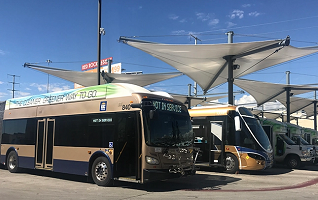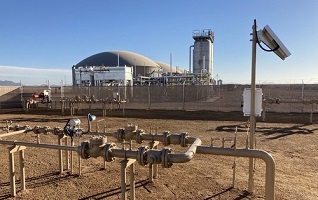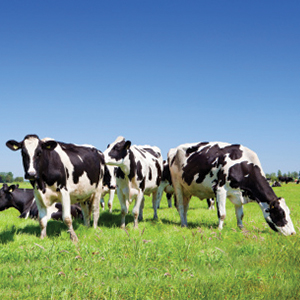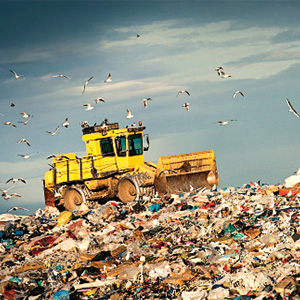Home Residential Services Learn About Energy Why Natural Gas? Renewable Natural Gas
Turning waste into clean fuel.
Humans and animals produce waste. Lots and lots of waste. All that manure, discarded food, and even our poo contains energy in the form of methane, one of the primary components of natural gas.
A reliable carbon-neutral fuel source is needed for days where the wind isn't blowing, and when the sun isn't shining. RNG has the vast potential to turn piles of waste into the ideal partner for other renewable energy sources.
Rather than letting that methane escape into our atmosphere where it contributes to the global emissions challenge, we're striving to capture, clean, and use it to heat our customers’ homes and water, dry our clothes and clean up the buses and trucks on our roads.
RNG is a complete carbon-neutral solution with the potential to help keep our planet clean by turning readily available waste into an energy source. We're partnering with producers and customers to make RNG part of the balanced energy future.



How is RNG Made?

Turning the waste people and animals regularly produce into clean-burning RNG involves doing what comes naturally: decomposition. Decomposition is the natural process of breaking down organic materials into simpler forms.
In the case of food waste and human and animal manure, the decomposition process releases methane, one of the primary components of natural gas. It also releases CO2. If left to escape into the atmosphere, methane and CO2 are potent greenhouse gasses. We don’t want that. It’s dirty and wasteful.
To solve this problem, we're partnering with producers of RNG, such as landfills, wastewater treatment plants, as well as farms and dairies, to build digesters. Digesters speed up the process of decomposition by introducing beneficial bacteria and creating the ideal environment for decomposition.
Because a digester is a closed system, the gas byproduct produced during decomposition is captured for use as RNG. Digesters also capture the organic solids, which are upcycled for use as organic fertilizers — a win-win for the environment.
One of the great things about RNG is that it's compatible with existing natural gas delivery systems and infrastructure. So once the gas is captured by digesters, it simply requires a little cleanup to be ready for distribution to customers.

Food Waste
66.5 Million tons/year

Wastewater
17,000 Facilities

Agricultural Waste
8,000 Large Farms and Dairies

Landfill Gas
1,750 Landfills
Where you find the waste people and animals make, you find the most common sources of RNG. Throughout the country, various industries and facilities such as landfills, wastewater treatment facilities, farms and dairies produce a large supply of waste that can be captured, which reduces the emission of methane into the atmosphere.
*Coalition for Renewable Natural Gas
Available Rain or Shine
RNG is a vital renewable energy source because it's always available. Wind and solar technologies are intermittent energy sources and can only generate energy when the sun is shining or the wind is blowing. RNG is available 24/7 and can be delivered within any natural gas pipeline.
Carbon Negative*
RNG can be considered a carbon-neutral fuel because its made from organic materials that absorb carbon dioxide from the atmosphere during photosynthesis. RNG captures organic waste that would otherwise decay and create additional methane emissions. By capturing more greenhouse gases than it emits, RNG can be considered carbon negative!
*Energy Vision
Everywhere Natural Gas Is
One of the many positive attributes of RNG is compatibility with existing natural gas infrastructure and appliances. RNG can be used to heat homes, cook meals, dry clothes and even fuel compressed natural gas vehicles without modifications.


















